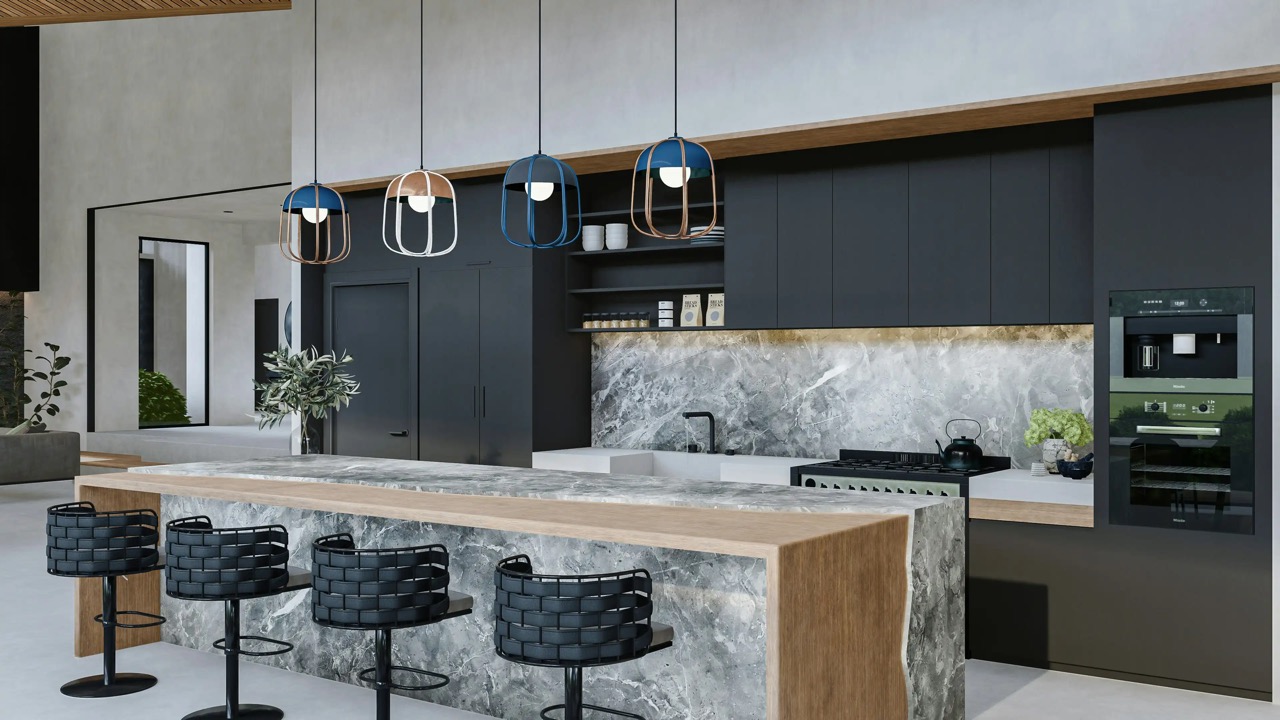When a woman says “NO” – is a phrase that hides many meanings, emotions and contexts, yet it is becoming a frequent point of interest in psychological and relationship analysis. It is said that women say “no” when they really want to say “yes,” but is this always the case? Let’s try to explore this topic by exploring the subtleties of communication, women’s needs and emotions, and the related implications in the context of relationships.
Table of Contents:
- Women’s Naturа – Subtlety, Strength and Sensitivity
- The image of women in society
- When a woman says “NO”
- When else does a woman say “NO”?
- How to say “NO” effectively?
Women’s Naturа – Subtlety, Strength and Sensitivity
In the depths of the human psyche, the nature of women holds a special place. It is a wealth of emotions, subtle nuances and unique strength that defines the essence of femininity. However, understanding this nature requires insight and attention, as it is like an intricately woven web of emotions, desires and needs.
Editorial recommends: Hands-free orgasm – taboo or reality?
D – like Delicacy
Femininity has always been associated with delicacy, but this delicacy often hides extraordinary strength. Women can be as flexible as a reed, while showing a tenacity that often surpasses the limits of imagination. Their ability to deal with difficulties, see the details and support others is invaluable. It is this strength, flowing from sensitivity and empathy, that gives women their extraordinary power.
I – like Emotional Intelligence
Emotional intelligence is one of the most precious treasures of a woman’s nature. Women often have a remarkable ability to read emotions, both their own and those of others. Their intuition allows them to sense tensions, needs or even emotions hidden behind the mask of a smile. It’s a skill that not only helps build better relationships, but also lays the foundation for empathetic understanding of the other person.
T – for Care
It is often in a woman’s nature to have a strong sense of caring and a willingness to make sacrifices. Women are willing to give up a lot for the sake of their loved ones, sometimes even neglecting their own needs. This altruistic approach to life makes it not uncommon for women to be supportive of their partners, families and friends.
Z – like Understanding
Women’s inner strength is often supported by their desire for understanding and acceptance. Women want to be understood in their emotions, desires and actions. This is a deep need that leads to building authentic and deep ties with other people.
Women’s nature is thus like a multi-layered fabric that conceals both delicacy and extraordinary strength. To understand a woman’s heart and mind, it is necessary to look at them from the perspective of empathy and deep respect.

The image of women in society
In a society that is constantly evolving and changing, women play an extremely important role. Their nature is rich and multidimensional, reflecting both the biological aspects of gender and the social and cultural contexts in which they function. In today’s world, women are involved in a variety of spheres of life – from careers to family and social life, bringing with them unique perspectives and experiences.
In the past, the image of women tended to be centered on the role of mother and housewife, but they now occupy a place in all areas of society. In the professional world, women are becoming more visible, contributing to the diversity of perspectives and skills in the workplace. On the one hand, they are coping with the challenges of gender equality and fighting for their rights in the workplace, while on the other hand, they are demonstrating their ability to manage their professional and personal lives flexibly.
In the context of relationships and relationships, women are also getting into conversations about equality, mutual respect and support. Expectations of partners and relationships have changed, and women are increasingly striving for partnered, satisfying relationships based on mutual understanding and acceptance.
However, one should not forget the role of the mother, which still remains one of the most important for many women. Being a mother is a unique experience that brings joy, challenges and transformation. In today’s world, where women balance a variety of roles, being a mother requires them to be flexible, organized and able to deal with social pressures and expectations.
Finding their way in the modern world is a challenge for women, but also a source of strength and inspiration. In every sphere of life, women bring with them their unique qualities, experiences and perspectives, co-creating the richness and diversity of society.
When a woman says “NO”
Sometimes men have difficulty understanding whether a woman is saying “yes” or “no.” Some seem to ignore a clear “no,” which can lead to many misunderstandings and problems. Men like a challenge, so they often try to get a woman who may seem a bit unattainable. But just because a woman is hard to get doesn’t mean she wants more than friendship.
Researchers at the University of Wisconsin, led by researcher Joseph Whitney, recently found in their study that men’s friendships with the opposite sex stem from sexual attraction, while women are more likely to view their friendships with men as purely platonic. Scientists suggest that the mating instinct gets in the way. Men, whether single or in a relationship, are more likely to assume that their female friends are “more romantically” interested in them than they actually are. Confident in his belief that the woman is attracted to him more than she admits to herself, the man explains her refusal to play with him by “shyness” or “reluctance.” Why is it so hard for a man to accept rejection? This can be put down to a high degree of self-confidence and a huge ego, but we must also blame centuries of learned behavior.
Also read: Love, children and sex: How does parenthood transform our intimate lives?
When else does a woman say “NO”?
Communication in relationships is a key element of healthy relationships. However, the moments when a woman says “NO” can cause anxiety, misunderstandings or even conflicts. Understanding the context in which a woman expresses this “NO” is important for building understanding and respect in the relationship.
Standing your ground
When a woman refuses something or expresses a firm “NO,” it can be a sign of her strong will and confidence. Standing her ground means that a woman is aware of her beliefs, needs and values, and that she is willing to stand up for them, even if it means saying no. It is at such moments that he shows his strength and determination to maintain his personal integrity.
A woman who stands her ground does not remain passive in the face of situations in which her beliefs or values are threatened. He does not succumb to external pressure or manipulation, but consistently sticks to his principles. This is an important part of a healthy relationship, as partners may have different opinions or ideas, but the ability to accept these differences while sticking to their beliefs builds a foundation of mutual respect and understanding.
Standing your ground does not mean, however, ignoring your partner’s needs or perspectives. Rather, it is the ability to communicate and negotiate in an open, honest and empathetic manner.
Setting boundaries
When a woman says “NO,” it can also be a signal that she is setting her boundaries and defining her expectations in the relationship. Setting boundaries is essential for maintaining a healthy and harmonious relationship, as it allows for balance and respect towards the needs of both partners.
Boundary setting is the process of determining what is acceptable and unacceptable to a woman in her interactions with her partner. This can include issues such as respect for privacy, respect for personal time, or acceptance of certain behaviors or activities. By clearly defining her boundaries, a woman sets a framework in which she feels comfortable and respected.
Setting boundaries in the relationship is equally important for the partner, as it allows him to understand what behaviors or actions are acceptable to the woman, and what may lead to conflict or dissatisfaction. This gives partners a clear point of reference, making it easier to build mutual respect and understanding.
However, setting boundaries requires a woman to have the confidence and courage to express her needs and expectations. Sometimes this can be difficult, especially if a woman fears her partner’s reaction or conflicts in the relationship. Therefore, it is important for partners to work together to build an open and respectful atmosphere in which they can freely express their boundaries and needs.
Protecting your time and energy
When a woman says “NO,” it often stems from the need to protect her time, energy and emotional health. In today’s busy world, where the pace of life is often very fast, protecting these resources becomes crucial to maintaining balance and mental well-being.
Women often have multiple roles at the same time – they are mothers, partners, professionally active, engaged in social life or take on additional household responsibilities. As a result, time and energy become valuable resources that need to be managed with care. When a woman refuses something or says “NO,” it may be due to the need to protect these resources from overuse or exhaustion.
Time and energy conservation can also be linked to the need to maintain mental and emotional health. A woman who feels overwhelmed may need a moment of rest, reflection or recuperation. By saying “NO,” she puts limits on situations that may overburden her or threaten her well-being. It is essential that partners in a relationship understand and respect the needs of their other halves. Accepting a partner’s decision to say no or express “NO” can be an expression of support and concern for her well-being.

How to say “NO” effectively?
Effectively expressing “NO” in a variety of life situations is key to maintaining healthy personal boundaries, maintaining balance and building satisfying relationships. There are several strategies you can use to effectively express your position while avoiding offending or escalating conflict.
Here are some examples:
- Expressing your needs: Instead of simply saying no, you can focus on expressing your needs and limitations. For example, instead of saying “NO, I can’t do it,” you can say “I’m afraid I don’t have enough time to implement it. Can we find another solution?”.
- Use positive language: Try to focus on what you can do instead of what you can’t. For example, instead of saying “I can’t help you today,” you can say “I already have other commitments scheduled, but I can help you tomorrow.”
- Setting boundaries: If you want to say no to something that violates your personal boundaries, it is important to clearly express those boundaries. You can say something like: “What you are asking me to do is beyond my limits. Could we talk about it?”
- Listening carefully: When saying no, it is also important to listen and understand the other person’s perspective. You can say something like: “I understand that this is important to you, but I have other priorities at the moment.”
- Open to negotiation: The expression “NO” does not always have to be final. You may be open to negotiation and seeking compromises. For example, you might say, “I can’t right now, but can we find another solution that is acceptable to both of us?”
- Remaining calm and empathetic: It is important to remain calm and empathetic when expressing “NO.” Avoid using abusive or aggressive words that can make the situation worse. Be polite and express your position respectfully.
Remember that effective communication takes practice and time. It is also important to listen to oneself and recognize one’s boundaries, and to seek a balance between expressing one’s needs and considering the needs of others.
Editorial recommends: When separation in a relationship is a necessity: a guide to understanding and overcoming difficulties





